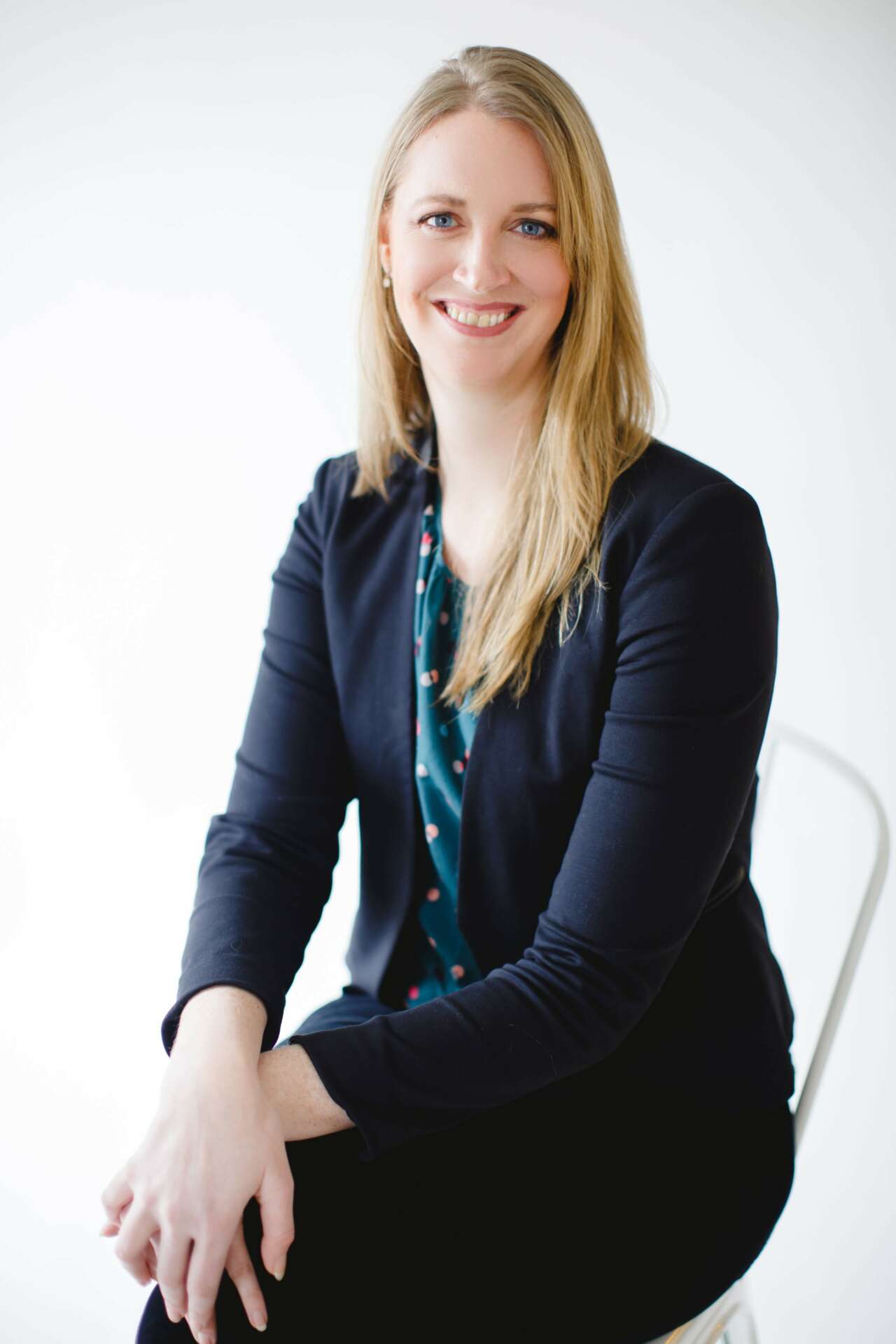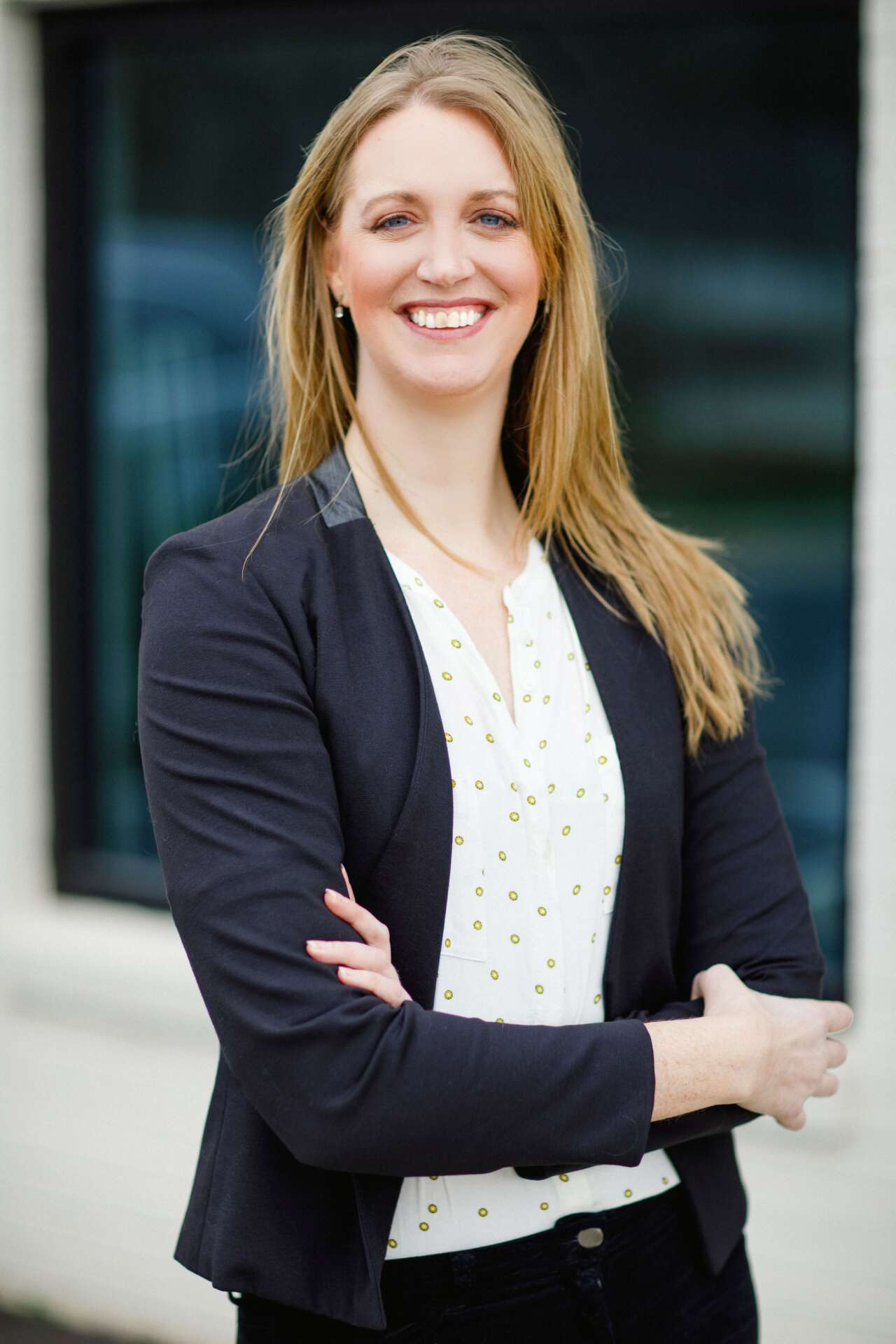We caught up with the brilliant and insightful Emily Haines a few weeks ago and have shared our conversation below.
Emily, appreciate you joining us today. Folks often look at a successful business and imagine it was an overnight success, but from what we’ve seen this is often far from the truth. We’d love to hear your scaling up story – walk us through how you grew over time – what were some of the big things you had to do to grow and what was that scaling up journey like?
I started my business wondering if I would even be able to pay my rent and my expenses after striking out on my own. The first few months were slow but steady work. But by six months in my phone was ringing off the hook and my inbox was overflowing and I began to see the real potential I had to grow something big. Over five years in business I’ve averaged about 70% revenue growth year on year. That amount of growth is quite astounding. Just last month I had revenues that were greater than my entire first year of business and it is pretty mind-blowing. I had the good fortune of stumbling into a very niche market with growing demand. But I think a big part of our growth is my firm belief in putting people first and processes second. Everything we do is built around our clients having a good experience with us and making their experience as easy as possible. However, this becomes extremely difficult to scale. And we don’t always hit the mark with it because its easy to have good intentions and over-promise and then at the end of working too many days and too many long hours, some of those emails go unanswered for longer than I would like or we aren’t as fast delivering something as I’d like to be. I really enjoy my clients and I would love nothing more than to spend all of my days chatting on the phone and emailing with them, catching up with their lives, and putting all of their concerns to rest. But that doesn’t get taxes filed or invoices sent out and recorded, or the payroll paid. We put a lot of emphasis on processes to ensure we’re working as efficiently as possible so we have more time to devote to people – both the team and our clients. But this is a big challenge in scaling a service business – how do we streamline our processes enough to free up our time to really focus on connecting with our clients without creating processes that are so automated that the clients don’t feel any human connection to us at all? And the second part is that as I grow my business and my team and the number of our clients grow, my role changes from being the client contact for everyone, to handing that responsibility over to my team and focusing on managing my team in a way that facilitates the same client experience. But learning how to hire and lead and manage a team that works together like a well oiled machine feels like a full time job in and of itself. Scaling a business is such a challenge because we really end up squeezed from all sides and the learning curve often feels so steep it feels like climbing a rock face. But then sometimes I think about the first year or two when my biggest concerns were survival. I was worried about getting invoices paid on time in order to pay my rent. And now I don’t worry about surviving at all. Now biggest concern is figuring out how to best hire, train and structure a team that will likely grow to 10 or 15 people over the next 18 months. And figuring out how to maintain some semblance of work-life balance while I do that.

As always, we appreciate you sharing your insights and we’ve got a few more questions for you, but before we get to all of that can you take a minute to introduce yourself and give our readers some of your back background and context?
I’m a CPA and the founder and owner of Xpatax Solutions LLC. We provide US tax services for Americans living abroad – primarily in Germany. We help our clients sleep better at night knowing their US taxes are in safe hands. I really fell into being a CPA and starting a tax firm by accident. I trained to be a scientist and have a masters degree in neurobiology from University College London. I started working for Deloitte because I wanted to stay in London and they were able to sponsor me for a work permit. After a few years I moved to Berlin to go back to being a scientist, but after I failed out of my PhD program I decided to accept my fate as an accountant and got my CPA license. I worked for a few years at KPMG and then back to Deloitte before deciding that I just wasn’t cut out to work for Big 4 corporate accounting firms. I started Xpatax Solutions in 2017 and we’ve grown like crazy ever since. I was really resistant to the overworking culture of those Big 4 firms. I really believe that its possible to have a good job that can become a great career that involves doing challenging, interesting, and satisfying work without being expected to work crazy hours. I’m proud to hire parents looking for flexible work arrangements and to provide career opportunities that don’t require choosing between a great job and having a life outside of work. My firm has grown exponentially every year we’ve been in business. Our new clients primarily come through referrals and I’m proud of having a firm that has developed a great reputation delivering really excellent services to our clients.
What’s a lesson you had to unlearn and what’s the backstory?
The biggest thing I had to unlearn was that I had to be like everyone else. I’m working in taxes and its a very old, conservative, traditional culture. As a younger woman starting a firm (compared to my competitors in their 60s and 70s) I definitely felt like the good ol’ boys didn’t want me around and that in order to be successful I had to present myself in line with that conservative and traditional culture. As a female in a very male-dominated industry, I believed that in order to succeed I had to cover the more feminine side of me and dress and act like the men. I went to an international tax conference about two years into having my own firm. The conference was me and about 500 old guys in suits and maybe 40 other women. It was very intimidating and I really had a bit of a crisis afterwards. I felt like if that’s what a CPA tax advisor looks like, then what am I, and how will I succeed? But afterwards as I thought about it more, I realized that my firm was, at the time, growing 100% a year. And I don’t think many of those guys were experiencing that rapid of growth. I started to realize that I was successful because I was different from them, not in spite of the fact that I was different. And even if some people really do want that traditional, conservative experience that many of them had to offer, there are also many people who specifically don’t want that experience. Believe it or not, many people, especially younger women, have very little desire to discuss their personal financial situation with a 70 year old man in a suit and be chastised about the quality of their spreadsheets. And those are the people who I’m delighted to work with. Meanwhile, if people want to hand over paper documents to someone in a suit sitting at a dark wood desk and get their tax return back in a leather folder full of papers, I’m really not the right person for them. Once I understood that marketing is as much about repelling the wrong people as attracting the right people, I began to feel more confident being more authentic to who I am. It feels better and is much easier to be myself and not try to be a traditional, conservative, stiff accountant. Ultimately people care most about having a reliable service performed reliably. Our clients want to feel like they’re in safe hands much more than they care about formalities.

Can you tell us about what’s worked well for you in terms of growing your clientele?
Execution is the most important thing for growing a business. I think its easy to get side-tracked by chasing shiny new clients. And I’ve fallen into this trap many times where the most demanding new client or opportunity can distract me from focusing on my best and oldest clients. I often have to remind myself to pause and reset and give my focus and attention to the older clients who are the least demanding and the most understanding. They really deserve top priority because they’ve demonstrated year on year that they’ll be reliable and easy to work with. And when they have a great experience, they’re the ones sending referrals. I’m fortunate to be operating in a very niche market where I’m able to rely entirely on referrals. But I see how repeat business is so much easier than new business. The first year of working with a client is a big investment in them learning our process and our systems and learning to trust us. Most of our clients are in stressful life situations because they’re moving abroad or in a transitional life situation, or they just found out they were supposed to be filing US taxes for their entire life and haven’t been doing it and are feeling stressed out about it. The first year we put a lot of work into proving that we are safe hands and they can trust us. Once we’ve established that trust, the communication becomes a lot more relaxed. But in order to grow, we still have to continue to execute on their work and deliver high quality work. Client retention and casual word of mouth referrals are the most efficient and cheapest forms of marketing that exist. Even if its not as sexy to focus on execution as it is on big marketing campaigns, my strong belief is its the single most important piece of marketing strategy.
Contact Info:
- Website: www.xpataxsolutions.com
Image Credits
Julia Fay


